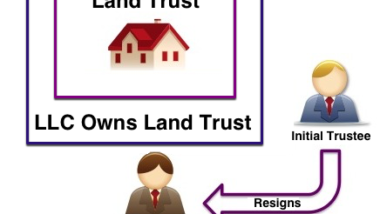FAQ Lease Options Overview
Audio
Lease options have been around a very long time. It’s when someone leases a property and then has the option or choice to buy. It does not have to buy. It has the choice to buy. It’s also called lease purchase where you lease for a while and then purchase down the road. That’s not an option, but you will lose your earnest money if you don’t fully close on a purchase and sale agreement.
The Many Benefits Of Lease Purchasing
Lease Purchasing affords wonderful benefits and opportunities to sellers, buyers, investors and those who would like to operate a home-based business. Lease Purchasing allows you to control property without ownership which has benefits for all.
What Is A Lease Purchase?
A Lease Purchase is a process that combines a basic rental lease with an agreement to purchase, or with an option to purchase the property. The Buyer (or Lease-Purchaser) pays to the seller a monthly payment that usually approximates a rental amount or a typical mortgage payment on the home. A percentage of that payment is typically applied towards the purchase price. At the end of the term, the buyer has the right to purchase the property for the price and terms to which both parties have previously agreed.
Put another way, a lease purchase is essentially a rental agreement combined with a purchase contract with pre-negotiated terms. The buyer leases the property for a specific period of time and then purchases the property before the end of the lease agreement. Sales price, length of rental, rent credits, escrow instructions, etc., are all contained in the agreement.
A lease purchase is a wonderful way to control property without the headaches of banks, mortgages, taxes or immediate loan qualifying. Lease Purchasing gives you the right to buy the property, but not the obligation to buy.
Following are just some of the benefits of Lease Purchasing.
Benefits For Buyers
- Low down payment.
- Qualification restrictions are not as great as in conventional financing.
- Past credit problems are not usually a road block.
- The option consideration can be fully credited to the purchase price.
- Your rent money is working for you.
- Purchase price is usually locked-in ahead of time.
- Gives you sufficient time to check out all the features and faults of the house.
- Time to check out the neighborhood.
- Puts you in legal control of a property for a specified period of time.
- Time to shop for and obtain the best financing.
- Major maintenance and repairs are the responsibility of the owner; you take care of nothing but minor maintenance.
- Profits, in case appreciation occurs and you decide to sell in the future.
Benefits For Sellers
- Usually top sales price for the property.
- Better quality tenants.
- Higher rent than usual for the market area.
- Non-refundable option consideration.
- All minor maintenance is delegated to the tenant/buyer.
- Seller remains on the deed.
- Seller retains the tax shelter.
- No fees to pay.
Benefits For Investors
- Maximum leverage.
- Minimum cash outlay.
- Minimum risk.
- No maintenance.
- Wonderful cash flow.
- Excellent profit potential.
Benefits For The Business Owner
- Little start-up capital needed.
- Little or no credit needed.
- Wonderful cash flow can be generated immediately.
- Excellent and realistic first year income can be achieved.
- Business can be started simply, no major equipment to buy.
- Business can be operated full time, part time or in your spare time.
- Best of all, the business can be operated from your own home office.
______________________



